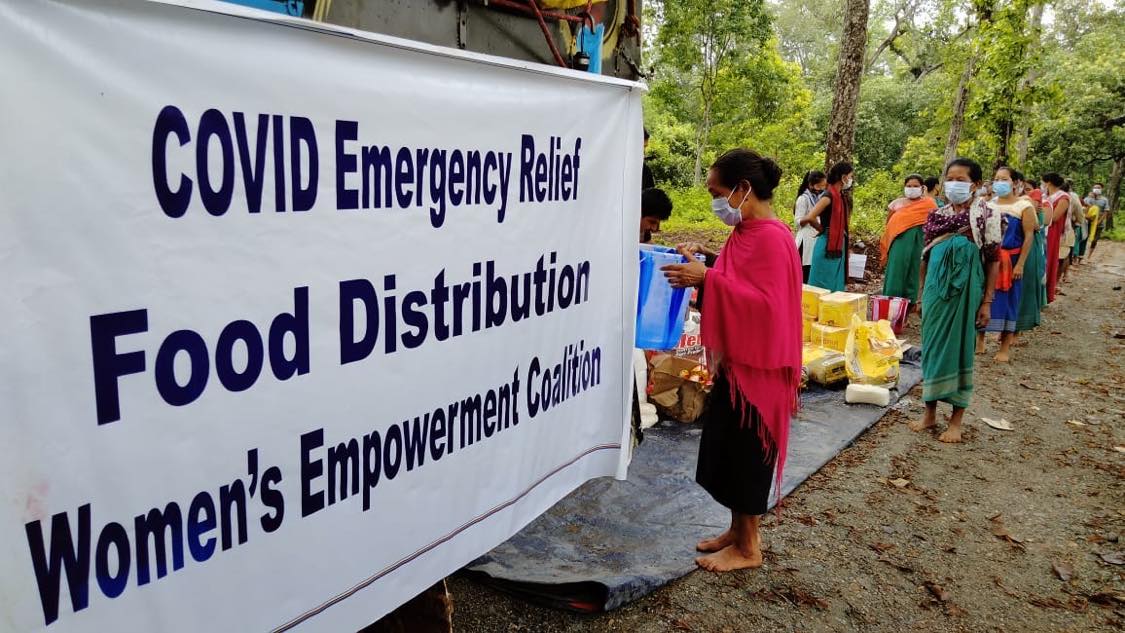Beginning in March 2021, WECO heard worrisome news from partners in Cambodia (The Ponheary Ly Foundation and Women’s Resource Center) that COVID-19 was inching toward rural communities with elevated health risks. These areas were also experiencing food insecurity due to widespread lockdowns and discontinued programs that ultimately left many people without a means to work and feed their families.
The virus spiked in Cambodia in February after four tourists bribed security guards and left quarantine early, which ushered in the wave of COVID cases in Phnom Penh and ultimately the entire country. The Cambodian Prime Minister, Hun Sen, has long been criticized for corruption and questionable connections with Chinese government and big business, and has been inconsistent in his response to the crisis. With the lockdown mandate in April, many Cambodians working in the informal sector (farming, factory workers, food & goods sellers, etc) were left with little aid or government assistance, which has resulted in severe food insecurity.
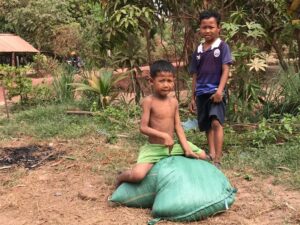
In response to these dire circumstances, WECO worked on emergency food distributions with The Ponheary Ly Foundation, REACH, ABC’s & Rice, and Samuth Muon, a long-time worker and advocate for community projects around Siem Reap. The Ponheary Ly Foundation was able to purchase 80 bags of rice to sustain food pantries for student dorms and community food banks for six months, and REACH/ABC’s & Rice were each given 40 bags of rice for their community food distribution projects.
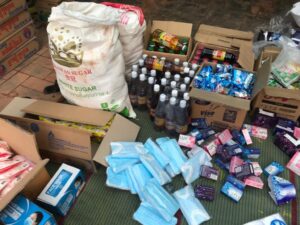
Samuth Muon and his small team distributed food, cooking, and sanitation supplies to 100 families from Pong Ro and Ro Kayea villages. Each family received a 50 kg bag of rice, noodles, cooking oil, soy sauce, salt chicken powder, sugar, fish sauce, toothpaste, toothbrushes, soap, masks, and hand sanitizer. You can watch our short video to see more about these initiatives here.
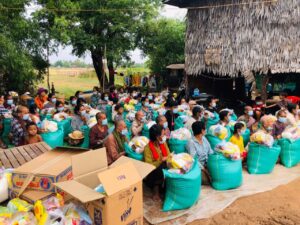
Following the crisis in Cambodia, COVID began to spread throughout India and May 2021 was the worst reported month for COVID cases and deaths in the country. Poor record-keeping and a lack of widespread testing have made these numbers especially hard to estimate, and as a result the death toll is much higher than reports suggest. Some figures indicate the actual number of infections is 15 times higher than the official count, which would make the death toll roughly double what has been reported to date.
India is now low on oxygen, hospital beds, and medical resources, precipitating a crisis that is devastating the country. This destabilizing reality, in tandem with the lack of an efficient government response, has led to desperation and an empowered COVID-related black market, a growing and troubling trend that allows profiteers to demand exorbitant prices for basic services and sell fraudulent goods, including fake oxygen tanks and diluted (or faulty) medicines.
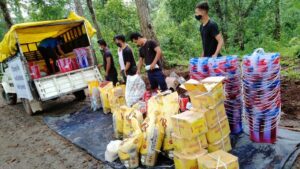
While some people seek profit from the pandemic—even those who claim to be providing aid—others are taking direct action to reach vulnerable communities. WECO’s partner organization, Parijat Academy, reported the virus was reaching communities near Garbhanga village, areas where staff does outreach for our menstrual health and reproductive education project. WECO sent emergency relief funds to founders Uttom and Aimoni to organize food distributions for 219 families living in the surrounding region.
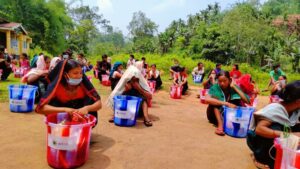
In collaboration with Parijat Academy students, materials were bought, packaged, and hauled to a central location so people from nearby communities could more easily attend the distribution, although not without challenges.
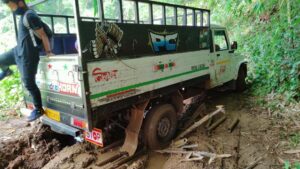
Many residents who came to participate walked barefoot for several miles to reach the distribution site where they received a bucket full of rice, mustard oil, salt, biscuits, onion, sugar, tea, chickpeas, soap, and face masks.
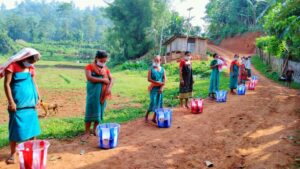
Medical workers who heard about the distribution were also able to come and provide COVID tests for each person, as 80% of villagers hadn’t yet been tested. Thankfully, everyone tested negative.
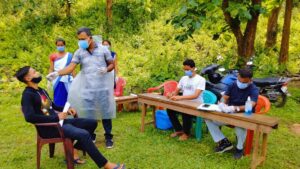
With Sinopharm vaccinations from China arriving in Cambodia as of June 8th, and only 3% of the Indian population vaccinated, there is a long road ahead to COVID recovery in these regions. There will be more need for both medical support and food distributions in the coming weeks as vulnerable communities continue to deal with virus risks and food insecurity resulting from a lack of work and strict lockdown measures.
WECO will continue to work with our partners experiencing this crisis and to provide information about upcoming COVID relief distributions. In the meantime, we encourage everyone who is interested in supporting these initiatives to reach out to us and get more involved.
